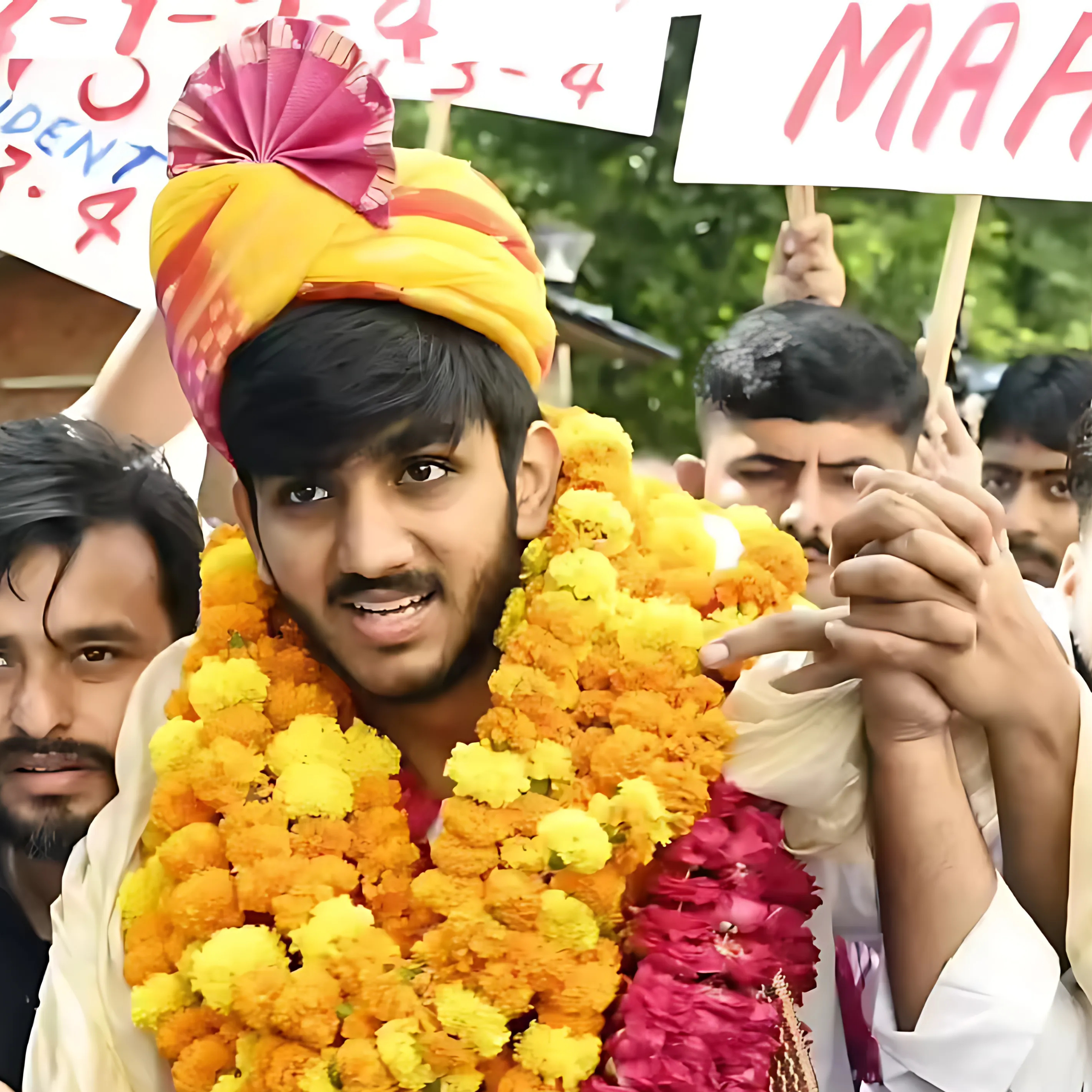Now Reading: Asia Cup 2025: Why Team India Refused to Touch the Asia Cup Trophy After Beating Pakistan
-
01
Asia Cup 2025: Why Team India Refused to Touch the Asia Cup Trophy After Beating Pakistan
Asia Cup 2025: Why Team India Refused to Touch the Asia Cup Trophy After Beating Pakistan

India just won the Asia Cup 2025 by defeating Pakistan in a thrilling final that had the entire cricket world on the edge of their seats, but what happened after the last ball was bowled has created more controversy than anything that happened during the match itself. While 500 million viewers expected the usual celebration scenes with champagne showers and trophy lifting, they witnessed something unprecedented that’s now trending higher than the actual cricket match.

Here’s the reality that’s making headlines across every news channel: Team India beat Pakistan by 5 wickets in Dubai last night, clinched their 9th Asia Cup title, but then refused to collect the trophy during the presentation ceremony that was delayed by over an hour, creating a diplomatic and sporting moment that’s got everyone from cricket experts to political commentators weighing in with their opinions.
The most shocking part? This isn’t about bad sportsmanship or post-match drama – it’s a carefully calculated decision rooted in geopolitics that’s revealing how international cricket has become far more than just sport.
The Asia Cup Trophy Presentation That Never Happened
Let’s address what actually happened last night: The Indian team refused to accept the Asia Cup trophy during the presentation ceremony that was delayed by more than an hour after they beat Pakistan by five wickets in the final on Sunday in Dubai. They refused because the trophy was to be presented by Asian Cricket Council president Mohsin Naqvi.
But here’s the context that explains everything: Mohsin Naqvi isn’t just the ACC president – he’s also the Pakistan Cricket Board Chairman and their Federal Minister for Interior of Pakistan as well, and India’s refusal to share the stage with him stems from the complex geopolitical tensions between the two nations that extend far beyond cricket boundaries.

The scene was surreal. India had just won one of cricket’s most prestigious tournaments, defeating their arch-rivals in a final that will be talked about for years, but instead of celebrating with the trophy, the team collectively decided to skip the ceremony entirely. Individual award winners Abhishek Sharma and Tilak Varma collected their personal trophies, but the team trophy remained untouched.
This wasn’t a spontaneous decision made in the heat of the moment – it was clearly a pre-planned response to a situation that India’s cricket administrators had anticipated. The fact that individual players collected their awards while the team skipped the main ceremony shows this was about protocol and politics, not about the match itself.
The One-Hour Delay That Told the Real Story
The post-match presentation ceremony was delayed by more than an hour, and that delay wasn’t because of television scheduling or rain – it was because intense negotiations were happening behind the scenes about who would present the trophy and whether India would accept it under those circumstances.
During that hour-plus delay, viewers watching on television saw repeated replays of match highlights, confused commentators filling airtime, and increasing speculation about why the ceremony wasn’t starting. Social media exploded with theories, memes, and hot takes, while the actual players were presumably being briefed on the diplomatic situation.
The delay itself became part of the story because it highlighted how modern cricket exists at the intersection of sport, diplomacy, and international relations. What should have been a straightforward victory celebration became a complex negotiation involving cricket boards, government protocols, and international relations.
When the ceremony finally did happen, it was clearly a compromise solution that satisfied nobody – India didn’t get a proper trophy presentation, Pakistan’s representative was put in an awkward position, and viewers were left confused about what they had just witnessed.

The Individual Awards That Revealed the Strategy
Here’s where the situation gets really interesting: Abhishek Sharma and Tilak Varma collected their respective match awards, showing that India’s boycott was specifically targeted at the team trophy presentation by the ACC Chief, not at the entire awards ceremony.
This selective participation demonstrates sophisticated diplomatic messaging. By having individual players collect personal awards while boycotting the team ceremony, India sent a clear message: this isn’t about poor sportsmanship or disrespecting the tournament, it’s specifically about not sharing a stage with Pakistan’s cricket board chairman in his capacity as ACC president.
The individual award winners were put in an awkward position – representing their country while the team made a political statement. Their body language during the brief ceremonies suggested they were aware of the uncomfortable situation and were fulfilling a diplomatic mission as much as receiving sporting recognition.
This strategic approach allowed India to avoid accusations of completely disrespecting the tournament while still making their political point clear to domestic and international audiences.
The 5-Wicket Victory That Got Overshadowed
The actual cricket match was spectacular and would normally dominate headlines for days. Team India lifted their 9th Asia Cup title by beating arch rivals Pakistan by 5 wickets in what was a thrilling final in Dubai, with Tilak Verma and Shivam Dube putting up a match-winning partnership that showcased exactly why India is considered one of cricket’s most dominant forces.
Suryakumar Yadav and his boys won the match by 5 wickets, as they clinched their 2nd Asia Cup T20I title, demonstrating the kind of composed batting under pressure that defines championship teams. The partnership between Tilak Verma and Shivam Dube was particularly brilliant, combining calculated risk-taking with steady accumulation of runs that eventually sealed the victory.
But all that brilliant cricket has been overshadowed by the trophy controversy, which is both unfortunate for the players who performed brilliantly and revealing about how sport cannot escape geopolitical realities in modern times.
The players who executed match-winning performances now find themselves part of a larger international relations story rather than being celebrated purely for their sporting achievements. It’s a reminder that representing your country in international sport involves responsibilities and considerations that extend far beyond the boundary rope.
The Social Media Explosion That Made It Global News
Within minutes of the ceremony confusion, #AsiaCup2025 and #IndiaTrophy were trending worldwide, with millions of posts, tweets, and reactions turning a sporting controversy into a global news event that transcended cricket audiences.
The social media response revealed deeply divided opinions. Indian supporters generally backed the team’s decision as a justified response to geopolitical tensions. Pakistani commentators criticized it as poor sportsmanship. Neutral cricket fans expressed disappointment that politics had intruded on sport. International media covered it as a diplomatic incident as much as a sporting story.
Memes flooded social media showing empty trophy podiums, Photoshopped images of alternative trophy presenters, and jokes about the world’s longest award ceremony delay. The humor helped defuse some of the tension while keeping the story trending for hours after the match ended.

The viral nature of the controversy also demonstrated how modern sporting events are experienced and interpreted through social media, where millions of participants create narratives, share reactions, and shape public opinion in real-time.
The Indian cricket fans’ reaction to the trophy controversy revealed an interesting shift in modern sports culture. Despite the awkward ceremony situation, celebrations erupted across India with fans flooding social media with congratulatory messages, street parties in major cities, and trending hashtags celebrating the team’s on-field performance.
The focus remained on the players’ achievements rather than the diplomatic complications, with supporters emphasizing that the victory itself mattered more than trophy presentation formalities. Meanwhile, Pakistani fans expressed disappointment at the match result and ceremony complications, with social media discussions reflecting the passionate nature of cricket rivalry between the nations. The contrast in reactions highlighted how sporting victories create different emotional responses across borders while both fanbases maintained focus on cricket excellence
The Diplomatic Implications That Extend Beyond Cricket
This trophy refusal represents more than just a cricket controversy – it’s a manifestation of deeper geopolitical tensions between India and Pakistan that periodically surface through sporting encounters, creating situations where athletes become diplomatic representatives whether they want that role or not.
The decision to refuse the trophy wasn’t made by the players on the spot – it almost certainly came from higher authorities within Indian cricket administration, possibly in consultation with government officials who understand the diplomatic messaging involved in these situations.
For international cricket governing bodies, this incident highlights the challenge of organizing tournaments involving nations with complex political relationships. The decision to have Pakistan’s cricket board chairman serve as ACC president was always going to create potential complications when India won tournaments.
The diplomatic fallout from this incident will likely influence future tournament organization, trophy presentation protocols, and the ways international cricket tries to navigate the impossible balance between sporting competition and geopolitical reality.
The victory resonated beyond cricket stadiums, with congratulatory messages pouring in from across India’s leadership and public figures. Prime Minister Narendra Modi joined millions of fans in celebrating the team’s achievement, posting congratulations on social media that highlighted the players’ performance and national pride in their sporting excellence.
The official recognition from India’s highest office underscored how deeply cricket victories connect with national sentiment, transforming sporting achievements into moments of collective celebration. The widespread social media response from political leaders, celebrities, and ordinary fans created a unified narrative of pride in the team’s on-field dominance, with the trophy ceremony controversy taking a backseat to appreciation for the players’ skill and determination under pressure.
The Historical Context That Explains Everything
This isn’t the first time India-Pakistan cricket has been complicated by geopolitics, and it certainly won’t be the last. The history of cricket between these nations is filled with moments where sport became a proxy for broader national tensions, diplomatic communications, and political messaging.
The two countries don’t play bilateral series anymore due to political tensions, making Asia Cup and World Cup encounters the only opportunities for direct sporting competition. This rarity makes each match tremendously significant both as sport and as symbolic national confrontation.
Previous Asia Cup and World Cup encounters have involved security concerns, venue controversies, spectator incidents, and various other complications beyond pure cricket. The trophy presentation controversy fits within a long pattern of sporting encounters that can never be purely about sport.
Understanding this historical context helps explain why Team India’s decision, while controversial, wasn’t surprising to people familiar with India-Pakistan cricket history. It was almost inevitable that some diplomatic complication would arise around a high-stakes final between these rivals.
The Players Caught in the Middle
Spare a thought for the players who trained for months, performed brilliantly under pressure, won a prestigious tournament, and then found themselves part of a diplomatic incident rather than celebrating a pure sporting triumph.
Suryakumar Yadav, as captain, was presumably briefed on the trophy situation and had to lead his team through an awkward situation while also managing his own feelings about missing out on the traditional trophy-lifting celebration that players dream about.
Young players like Tilak Varma and Abhishek Sharma, who had brilliant performances worthy of pure celebration, now find their achievements discussed in the context of geopolitical tensions rather than purely sporting excellence.
For these players, representing their country means accepting that sometimes sporting achievements become entangled with issues far beyond their control or responsibility. It’s the price of playing international cricket between nations with complex relationships.
The Celebrations That Happened Despite the Missing Trophy
What made this victory unique was how Indian fans and the team itself celebrated without the traditional trophy-lifting moment. The players hugged, cheered, and acknowledged the crowd from the podium area, creating their own victory celebration that focused purely on the on-field achievement rather than ceremonial formalities.
Back in India, celebrations erupted across cities regardless of the trophy controversy. Fans flooded social media with congratulatory messages, street parties spontaneously formed in major metros, and the victory dominated trending topics nationwide. Prime Minister Narendra Modi joined millions in celebrating the team’s achievement, posting congratulations that highlighted the players’ performance and sporting excellence.
For Indian supporters, the message was clear: the victory on the field mattered more than any trophy presentation. The team’s dominant performance against their arch-rivals, the clinical chase, and the championship title were the real prizes worth celebrating. Social media filled with posts emphasizing that “we won the match, not the ceremony” and “champions don’t need trophy photos to prove their victory.”
This spontaneous shift from traditional celebration to pure sporting pride revealed something interesting about modern cricket fandom – that the performance itself, the victory achieved through skill and determination, holds more emotional value than symbolic trophy-lifting moments. The celebrations happened everywhere except the official podium, making it a people’s victory celebration rather than a ceremonial one.

The Media Coverage That Shaped the Narrative
How this trophy controversy gets remembered will largely depend on media framing, and the coverage has been fascinatingly divided based on national perspectives, political leanings, and sporting versus diplomatic focus.
Indian media has generally framed India’s decision as principled and justified given geopolitical context. Pakistani media has criticized it as poor sportsmanship that disrespected the tournament. International media has covered it as a diplomatic incident that highlights ongoing tensions between nuclear-armed neighbors.
Sports media has struggled with how to cover it, wanting to focus on the brilliant cricket while acknowledging that the trophy controversy has become the bigger story. Some outlets have tried to separate sporting analysis from political commentary, but that separation is increasingly impossible in modern international cricket.
The variety of media narratives demonstrates how the same event can be interpreted completely differently depending on perspective, making it difficult for casual observers to understand what actually happened and why it matters.
The Future Implications For Tournament Organization
This incident will force international cricket governing bodies to reconsider how they organize presentations and ceremonies for tournaments involving nations with complex political relationships, because clearly the current approach creates situations that nobody finds satisfactory.
Will future tournaments avoid having officials from competing nations present trophies? Will India refuse to participate in tournaments where Pakistan officials hold leadership positions? Will diplomatic protocols be established in advance to avoid last-minute ceremony chaos?
The answers to these questions will shape how international cricket functions for years to come, potentially creating separate sporting worlds where certain nations avoid certain tournaments or refuse to participate under certain conditions.
The tournament organization implications extend beyond just trophy presentations to questions about venue selection, broadcasting rights, commercial partnerships, and all the other ways that modern international cricket requires cooperation between nations that have minimal diplomatic relations otherwise.
The Unspoken Message That Resonated Loudest
What made India’s trophy refusal particularly powerful wasn’t what was said, but what was communicated through silence and absence. By simply not collecting the trophy, India sent a message that resonated across diplomatic channels without requiring any official statements or explanations.
This non-verbal communication allowed India to make their point while maintaining plausible deniability about whether it was a planned diplomatic statement or a spontaneous reaction to ceremony circumstances. The ambiguity gave India flexibility in how they explain the incident to different audiences.
For Pakistan, being publicly refused on what should have been a ceremonial role must have been diplomatically embarrassing, which was presumably the intended effect. The incident demonstrated how sporting events can be used for diplomatic messaging without requiring direct confrontation.
The power of this silent message demonstrates how modern diplomacy increasingly happens through symbolic actions and media moments rather than through formal diplomatic channels, especially between nations that have minimal official dialogue.
India’s Asia Cup 2025 victory will be remembered not just for the cricket, but for what happened after the cricket ended. The trophy that wasn’t collected, the ceremony that was delayed, and the diplomatic message that was sent through sporting silence have created a moment that transcends sport and enters the realm of international relations.
The players who won the match deserve to be celebrated for their cricketing brilliance. The administrators who made the trophy decision believed they were protecting national dignity. The fans who watched deserve the full celebratory experience they anticipated. The diplomatic implications will continue to unfold for months or years as international cricket grapples with how to function when sport cannot escape politics.
Your neighborhood cricket fan isn’t just discussing batting partnerships and bowling figures today – they’re part of a global conversation about sport, diplomacy, national pride, and the complicated reality that international cricket, especially between certain nations, can never be purely about what happens on the field. The trophy sits somewhere in Dubai, uncollected and controversial, serving as a symbol of everything that makes India-Pakistan cricket simultaneously compelling and complicated.
Frequently Asked Questions
Why did Team India refuse to collect the Asia Cup 2025 trophy? Team India refused to accept the Asia Cup trophy because it was to be presented by Asian Cricket Council president Mohsin Naqvi, who is also the Pakistan Cricket Board Chairman. The refusal was rooted in geopolitical tensions between India and Pakistan, with India choosing not to share the stage with Pakistan’s cricket board chairman in his capacity as ACC president during the presentation ceremony.
Did India win the Asia Cup 2025 final against Pakistan? Yes, India won the Asia Cup 2025 final by defeating Pakistan by 5 wickets in Dubai on September 28, 2025. It was India’s 9th Asia Cup title and their 2nd T20I Asia Cup title. Tilak Verma and Shivam Dube put up a match-winning partnership to chase down Pakistan’s total and secure victory for Suryakumar Yadav’s team.
Why was the Asia Cup 2025 presentation ceremony delayed by over an hour? The presentation ceremony was delayed by more than an hour because intense behind-the-scenes negotiations were taking place regarding who would present the trophy and whether India would accept it under those circumstances. The delay reflected the diplomatic complications surrounding the trophy presentation by Pakistan’s cricket board chairman.
Did any Indian players collect awards from the Asia Cup 2025 ceremony? Yes, individual award winners Abhishek Sharma and Tilak Varma collected their respective match awards during the ceremony. This selective participation demonstrated that India’s boycott specifically targeted the team trophy presentation and wasn’t a complete rejection of the awards ceremony, showing sophisticated diplomatic messaging.
What are the diplomatic implications of India refusing the Asia Cup trophy? The trophy refusal represents deeper geopolitical tensions between India and Pakistan manifesting through sporting encounters. It will likely influence future tournament organization, trophy presentation protocols, and how international cricket navigates the balance between sporting competition and geopolitical reality, potentially affecting venue selection, official appointments, and ceremonial procedures for future tournaments.
















